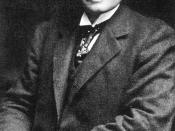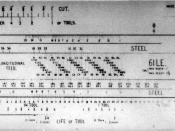Introduction
Organisations play an increasingly important role in a modern industrialised society. Organisational Behaviour (OB for short) is a field of study, which is of interest to both practitioners, and researches of management.
In the beginning stages of OB, the emphasis was on looking at each individual employee's movements and standardising them through training. Frederick Taylor pioneered this approach in his work on scientific management. Its focus was on improving the efficiency of individual workers. A related approach was to try to create an efficiency organisation through following rules. Henri Fayol who formulated his principles of management, and Max Weber who formulated his theory of Bureaucracy pioneered this approached. The interest was on the organisation as a whole.
The next stage in the OB evolution began with the famous Hawthorne studies, under Elton Mayo and Fritz Roethlisberger. The Hawthorne studies were aimed at investigating the effect of illumination on the productivity of individual workers.
It showed that human need for recognition and group membership has a greater impact on productivity than physiological factors such as illumination and rest breaks. This led to a humanistic perspective of organisations, which attempts to satisfy the employees' needs as human beings.
Scientific Management
The principal object of management should be to secure the maximum prosperity for the employer and the employee.
The words "maximum prosperity" are used, in their broad sense, to mean not only large dividends for the company or owner, but the development of every branch of the business to its highest state of excellence, so that the prosperity may be permanent.
Many of the classical writers were concerned with the improvement of management as a means of increasing productivity. F.W Taylor (1856-1917), the 'father' of scientific management considered that all work process could be analysed into discrete tasks and that...



Good
This is well organized and well compiled essay written on the organizational behavior.
0 out of 0 people found this comment useful.